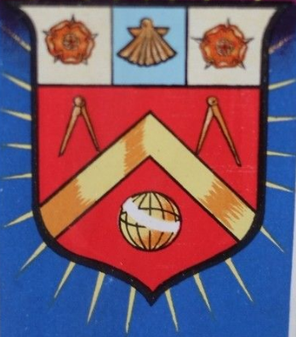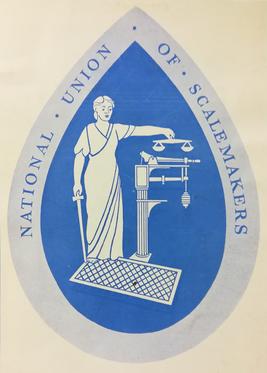Related Research Articles

The Amalgamated Engineering and Electrical Union (AEEU) was a British trade union. It merged with the MSF to form Amicus in 2001.

The Amalgamated Engineering Union (AEU) was a major British trade union. It merged with the Electrical, Electronic, Telecommunications and Plumbing Union to form the Amalgamated Engineering and Electrical Union in 1992.
The Amalgamated Carters, Lurrymen and Motormen's Union was a trade union representing commercial road transport workers in the north of England.

The Amalgamated Society of Woodworkers (ASW) was a British trade union representing carpenters, joiners and allied trades. The ASW was formed in 1921 by the amalgamation of two smaller unions. It was itself merged into the Union of Construction, Allied Trades and Technicians in 1971.

The Irish Trades Union Congress (ITUC) was a union federation covering the island of Ireland.
The National Union of Gold, Silver and Allied Trades (NUGSAT) was a trade union in Britain and Ireland. It represented workers in precious metals, jewellers, diamond polishers, electroplaters, watch and clock repairers and dental technicians.

The Irish National Painters' and Decorators' Trade Union (INPDTU) was a trade union representing painters and decorators in Ireland.
The Rossendale Union of Boot, Shoe and Slipper Operatives was a trade union representing workers in the footwear trade in the Rossendale area of Lancashire.
The Amalgamated Society of Woodcutting Machinists (ASWM) was a trade union representing sawyers in the United Kingdom.
The Irish Graphical Society was a trade union representing workers in the printing trades in Dublin.
The Irish National Union of Vintners', Grocers' and Allied Trades Assistants (INUVGATA), also known as the Barmen's Union, was a trade union representing retail and bar staff, principally in Ireland.
The Electrical Trades Union was a trade union representing electrical technicians and engineers in Ireland.
The Energy Services Union is a trade union representing workers at the ESB Group in Ireland.
The Irish Municipal Employees' Trade Union was a trade union representing employees of Dublin City Council in Ireland.
The Irish Bookbinders' and Allied Trades Union was a trade union representing print workers in Ireland.
The Irish Seamen and Port Workers' Union, an Irish trade union, was founded in 1933.
The National Engineering and Electrical Trade Union (NEETU) was a trade union representing engineering workers in Ireland.

The National Union of Scalemakers was a trade union representing workers involved in making weighing scales in the United Kingdom and Ireland.
The Building Workers' Trade Union (BWTU) was a trade union in Ireland.
The Irish National Union of Woodworkers (INUW) was a trade union representing woodworkers in Ireland.
References
- ↑ Juliet Love and Jillian O'Brien, Western Europe 2003, p.354
- ↑ John B. Smethurst and Peter Carter, Historical Directory of Trade Unions, vol.6, p.16
- ↑ John B. Smethurst and Peter Carter, Historical Directory of Trade Unions, vol.6, p.142
- ↑ John B. Smethurst and Peter Carter, Historical Directory of Trade Unions, vol.6, p.17